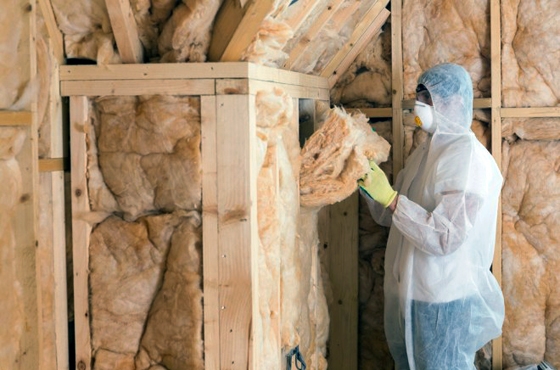The Kingdom of Saudi Arabia (KSA) will soon require increased insulation in all new buildings across 24 major cities that, in total, account for 80 percent of the country’s population. The action intends to substantially cut energy consumption and waste, as a properly insulated structure can reduce electricity bills up to 40 percent.
It is estimated that only 25.4% of the Kingdom’s buildings are thermally insulated. In Jeddah, 87.5% of the buildings lack insulation, the ratio is 72.6% in the Eastern Province and in Riyadh racks up 51.3% percent according to a report issued last year. Mind-blowing statistics when you consider the punishing heat gain these structures are subjected to and the resulting cooling loads needed to make them inhabitable.
Hossam Al Rashodi, CEO of Maskan Arabia Real Estate Development Company, told Maktoob News that the Saudi Building Code should also be amended to oblige developers to use energy-efficient materials. The Saudi code is based on international standards which specify insulation values with respect to roofs, walls and floors, based on the requirements of US and EU climate zones. That makes for a solid point of reference, but KSA codes need to reflect the climactic and insolation conditions of this specific region.
That code is applicable to all new buildings, however, enforcement is lax and most buildings are still constructed without insulation, making them reliant upon mechanical air conditioning to mitigate high levels of temperature and humidity. Saudi buildings consume 80% of all generated electrical, 50% of this is used by air conditioning alone, and consumption is increasing 7% annually.
Public awareness is also a challenge because most KSA energy prices are highly subsidized; consumers are unaware of the true value of electricity.
Rashodi said that properly insulating walls, roofs and glass in villas yields several owner benefits including reduced energy consumption, sizable savings in ongoing utility costs, and enhanced comfort of living. Studies prove buildings with lower operating costs are easier to sell, too.
Thermal insulating systems do cause construction costs to rise, on average by 3 to 5% but fully dependent on building size and function. However, this uptick in first investment is quickly negated by reduced investment in expensive air conditioning systems, lower power tariffs, and less wasted energy over the life of the structure.
KSA is to the game of legislated sustainability, but it can pick from the world’s best building standards and, as critically, select best means of code enforcement. With bold leadership on the part of government, developers and designers, the enormous capital being invested in KSA construction projects could be a game-changer for green design.
Green Prophet
24 October
























































